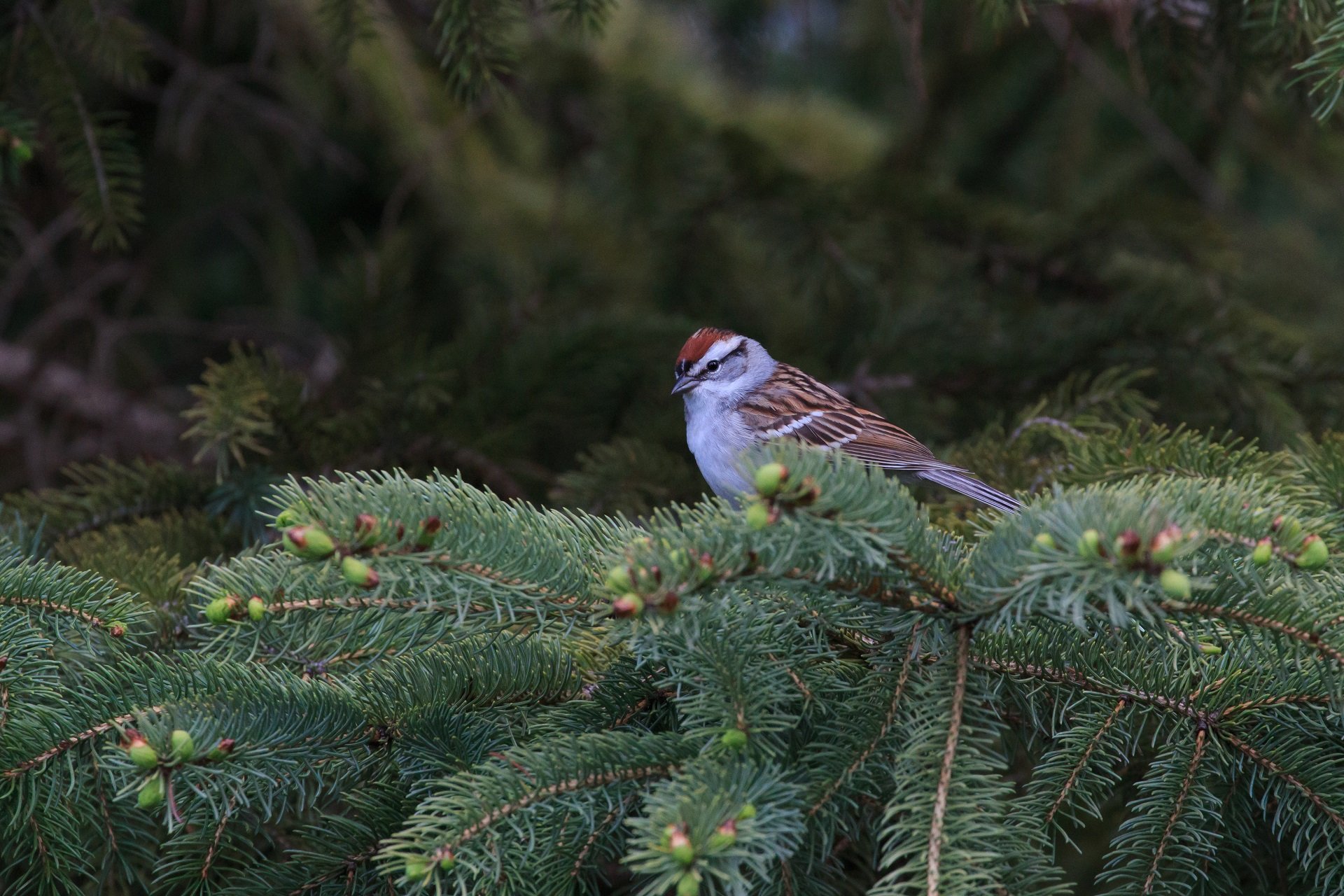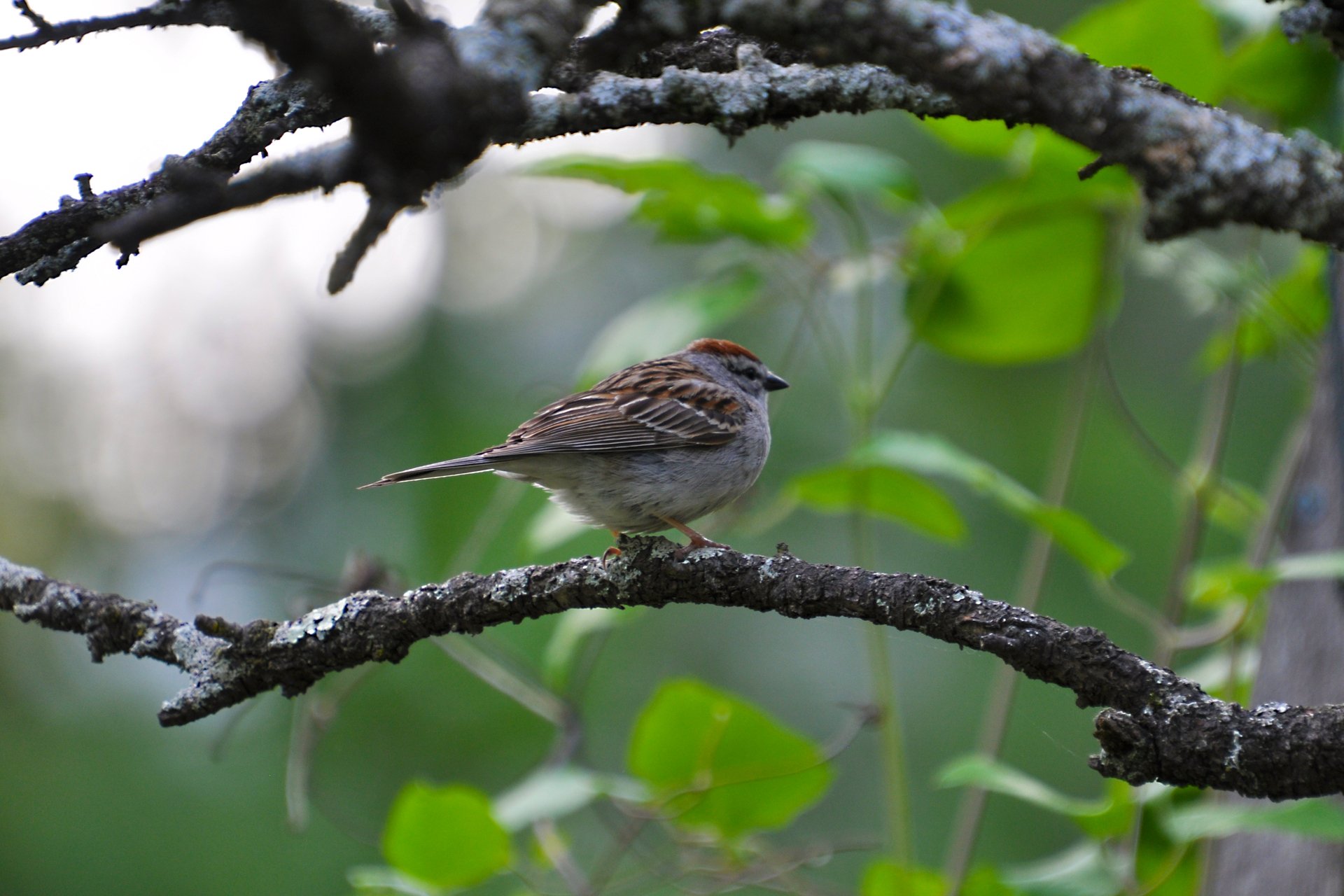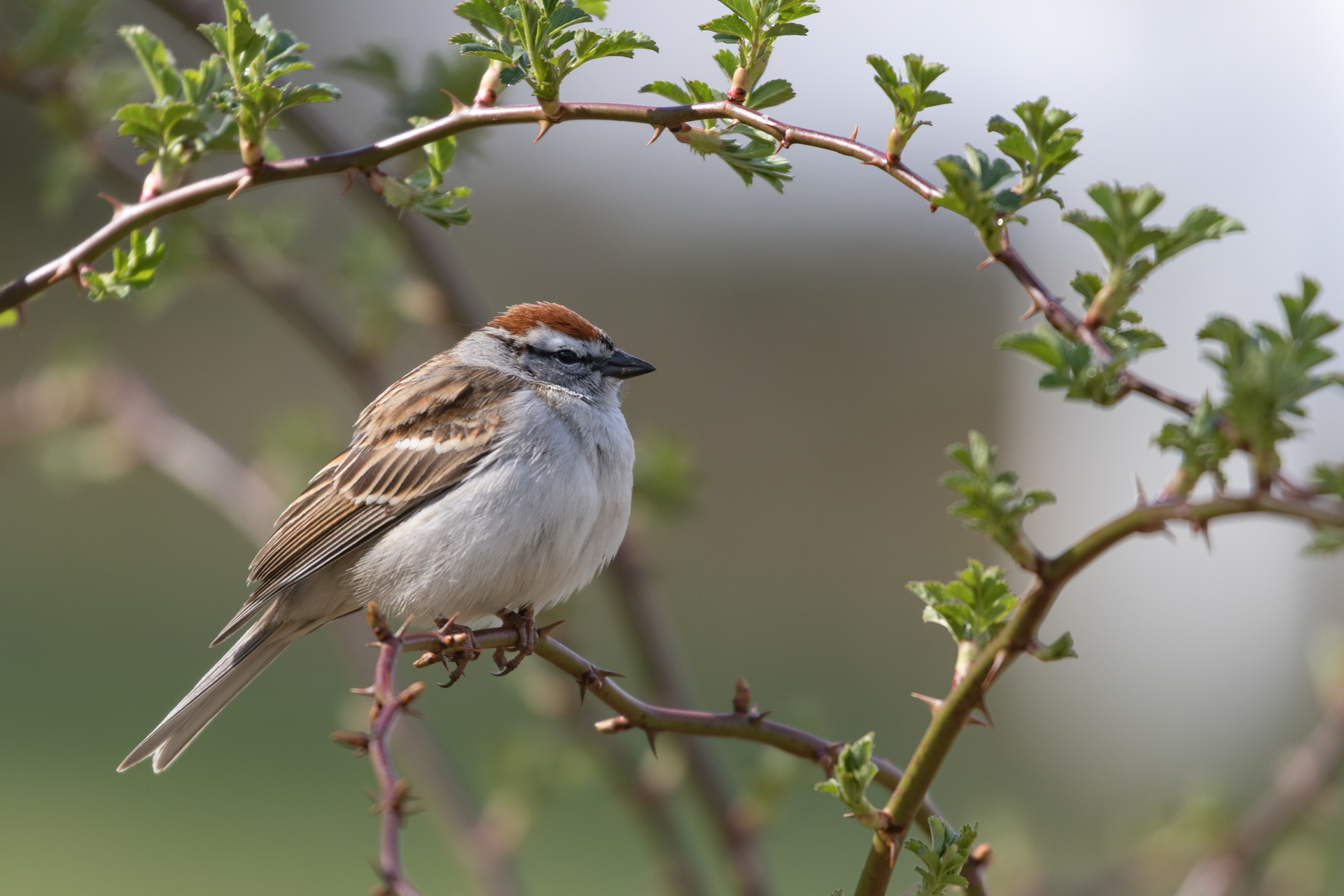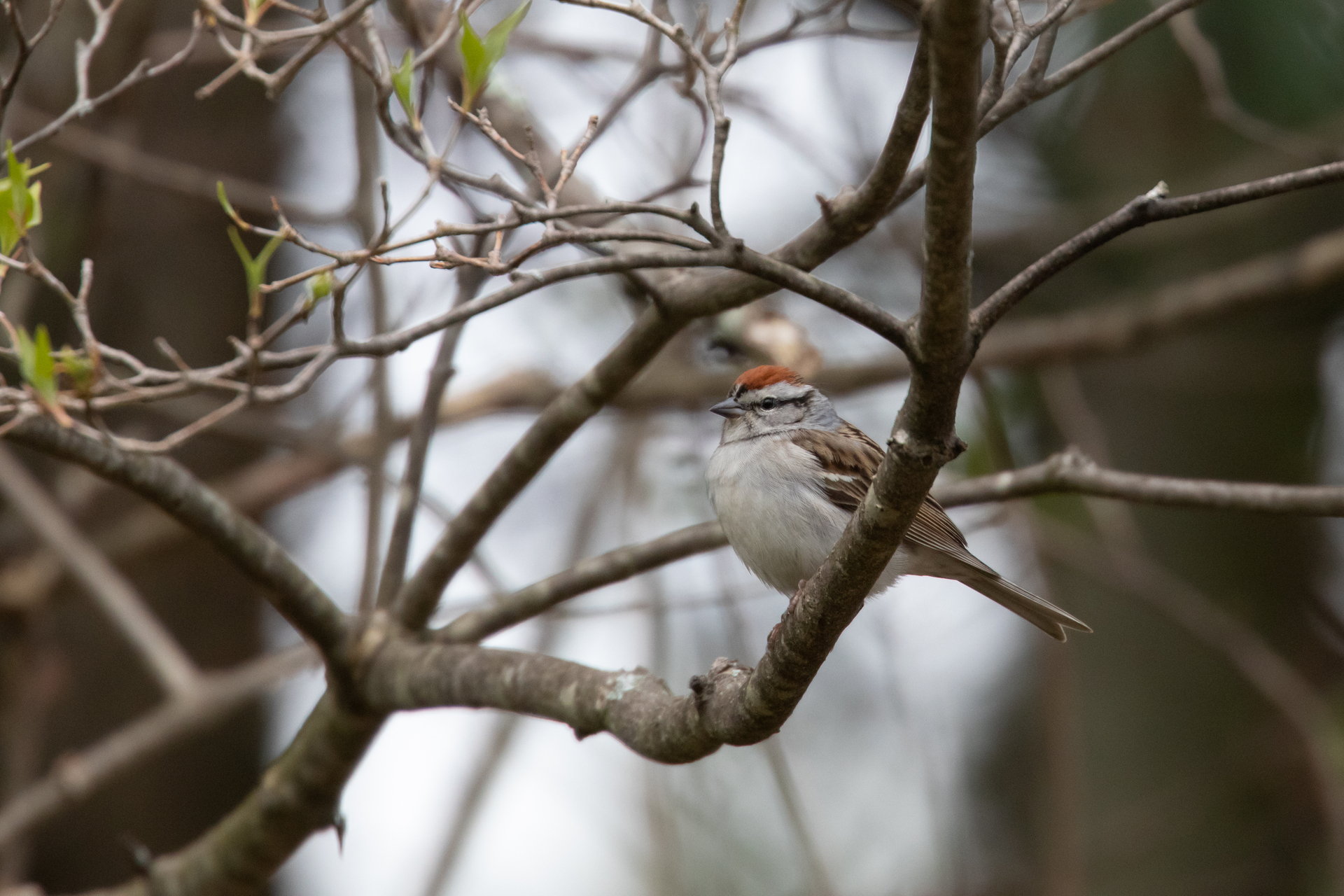Birds in Massachusetts
Chipping Sparrows
Though they are some of our smallest sparrows, Chipping Sparrows make themselves heard in spring and summer with a ringing song that belies their size.
While many sparrows prefer grassland or shrubland habitat, Chipping Sparrows are forest dwellers, and as such are most commonly encountered foraging near the edge of a wooded area.
How to Identify the Chipping Sparrow
Chipping Sparrows are small sparrows (less than 6” from bill to tail) with chestnut caps and completely unmarked undersides. Their faces are cleanly outlined by a white eyebrow-stripe and a black line through the eye itself. No other sparrow in our area has these characteristics.
Young Chipping Sparrows may have streaky breasts and bellies, but their small size and the frequent presence of nearby adults aid identification.
Chipping Sparrow vs House Sparrow vs Tree Sparrow
Chipping Sparrows are commonly confused for American House Sparrows or Tree Sparrows. The chipping sparrow is actually quite unusual in Massachusetts in winter, so any sparrow with a rusty cap at a feeder is most likely an American Tree Sparrow. Abundantly common in urban areas, city sidewalks, and parks, House Sparrow females are often seen with the distinctive, black-throated male. Learn more about how to tell the difference
Chipping Sparrow Behavior
Like most sparrows, Chipping Sparrows are ground feeders, but they are usually found in very different habitat from other common species like song sparrows and the introduced house sparrow. Chipping Sparrows are often seen pecking through the leaf litter or brush on a road or path at the edge of the woods. If approached, rather than scattering for the trees, “chippies” will sometimes repeatedly fly further along the path and land again.
Chipping Sparrow Song
Chipping Sparrow song is a single trill of rapid notes on one pitch; it can be difficult to separate from the songs of Pine Warbler and Dark-eyed Junco even at the best of times.
Where Can I See Chipping Sparrows?
Chipping Sparrows are common and widespread breeding birds in wooded and suburban areas across the state. They are also common migrants, but are rarely encountered in winter, when they are replaced by the larger American Tree Sparrow for the most part.
Even so, more Chipping Sparrows are overwintering in the Bay State each year, especially on Cape Cod where the winters are milder.
How Mass Audubon is Supporting Birds in Massachusetts
Mass Audubon works at our wildlife sanctuaries and beyond to ensure that the nature of Massachusetts continues to thrive. By scientifically monitoring Massachusetts birdlife, Mass Audubon informs important conservation decisions and launches targeted initiatives to help at-risk species. In addition, fostering healthy habitats, supporting native species, and educating people about the importance of nature conservation is critical to our success. Learn more about our work
How You Can Support Birds in Massachusetts
Mass Audubon supports birds like the Chipping Sparrow every day, but we couldn’t do it without the support of our 160,000+ members.
Help support Chipping Sparrows, and birds like them, by becoming a member today.
Upcoming Bird Programs
Winter Finch Walk with Manomet Conservation Sciences
-
Tidmarsh Wildlife Sanctuary, Plymouth
-
Thursday, January 8
9:00-10:30am
Adults
Rescue Raptors from Rodenticides
-
Online
-
Thursday, January 8
7:00-8:00pm
Adults & Families - 12 - 17
Friday Morning Birdwatching
-
Parker River National Wildlife Refuge, Newburyport
-
Friday, January 9
8:30-11:30am
Adults
Stay Connected
Don't miss a beat on all the ways you can get outdoors, celebrate nature, and get involved.






